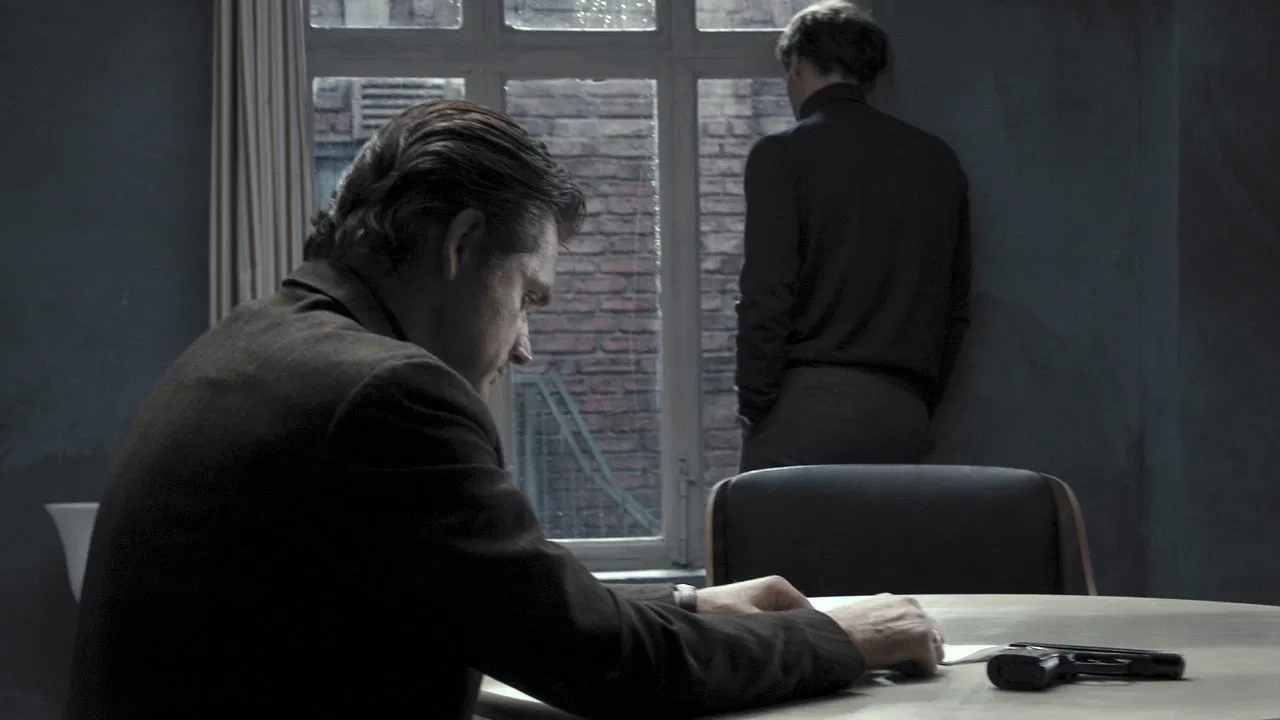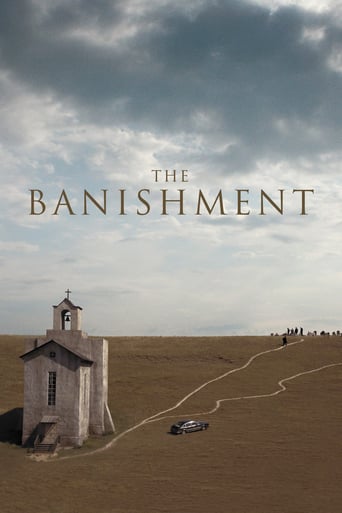

A city family take a holiday in the country, staying at a remote house in the Russian countryside for a. Alex's wife, Vera, reveals to him that she is pregnant by another man. He struggles to decide how he should respond and what should be done, eventually deciding that an abortion should be arranged. His wife kills herself with an overdose immediately after the abortion. However, Alex then finds out that he was in fact the father and that in fact his wife had never felt close enough to him to be able to regard him as a partner.An intriguing story but slow, in the style of Tarkovsky, maybe too long.
... View MoreRussian screenwriter and director Andrey Zvyagintsev's second feature film which was written by screenwriters Oleg Negin and Artyom Melkumian, is based on a novel from 1953 called "The Laughing Matter" by Armenian-American author William Saroyan (1908-1981). It premiered In competition at the 60th Cannes International Film Festival in 2007, was shot on locations in Russia, Moldova, Belgium and France and is a Russian production which was produced by Russian producer Dimitry Lesnevsky. It tells the story about a man named Alexandr who lives on the Russian countryside with his wife Vera, their daughter Eva and their son Kir. Besides visits from their neighboring family and Alexandr's interactions with his friend Mark, Alexandr and Vera lives a rather quiet life with their young children and seems happy all though they barely talk to each other, but one late night after the children have said their prayers and gone to bed, Vera surprises her husband with a shocking confession that leaves her despaired by his reaction. Distinctly and masterfully directed by Russian filmmaker Andrey Zvyagintsev, this rhythmic fictional tale which is narrated from multiple viewpoints, draws a consistently involving and heartrending portrayal of a man whom withdraws into a reflective state of mind and avoids his wife after learning something that she has kept hidden from him. While notable for it's naturalistic and distinct milieu depictions, sterling production design by production designer Andrey Ponkratov, masterful cinematography by Russian cinematographer Mikhail Krichman, fine costume design and brilliant use of sound and colors, this character-driven, narrative-driven and humane psychological drama where an intangible mist creates a distance between a conflicted married couple, depicts two interrelated and internal studies of character and contains a cryptic score by composers Arvo Pärt and Andrei Dergachov.This mysterious story which examines themes like family, marriage, grief and reconciliation, where the real drama goes on behind the faces of the quiet though expressive characters and where Andrey Zvyagintsev leads his camera like Tolstoy wrote his words and Rembrandt painted his canvases, is impelled and reinforced by it's cogent narrative structure, substantial character development, esoteric characters, the children's powerful presence, excellent editing, melancholic atmosphere, cinematic poetry and the low-keyed and prominent acting performances by Russian actor Konstantin Lavronenko and Norwegian actress Maria Bonnevie. A cinematographic and hypnotic journey into man's searching mentality and a metaphysical masterpiece in the spirit of Andrei Tarkovsky (1932-1986) where a singular universe is created by the sounds of falling raindrops, birds singing and trees moving in the wind.
... View MoreThere is no doubt that the measured beauty, both savage and majestic, is superbly and evotically captured by the cinematography of Mikhail Krichman, from start, to finish, both nodding to and taking hats off to, undoubtedly, Tarkovsky.However, what started out as the short story 'Laughing Matter' by American writer William Saroyan, unfortunately gets swamped by the visual bravado and a two and a half hour run-time. It gets to being on the cusp of something big, or something profound that might explain what's going on - but that may be the trick that The Return director Andrey Zvyagintsev wants.With its gorgeously slow tracking shots and weaving camera angles, that follow this troubled family who now are in hiding in one those idyllic Russian country houses on a windswept plain and with their own walnut grove, there lies an intensity that is palpable, brewing away quietly. This is helped by a sparse score, notably a slightly electronically treated 'monk' sounding choral piece that rises like a sullen mist.Lead actor, the Father of the family, Konstantin Lavronenko, picked up Best Actor at Cannes. His wife, Eva, announces one day that she is pregnant and through studies in male supposition and pride, family bonds and shady past dealing contacts are tried - and tested. What unravels, slowly, are the various connotations resulting from these and their actions, on both them and their existing children.My four stars are really for the sense of unfulfillment - it's neither oblique and enigmatic enough that a Tarkovsky would be but it's obvious there's a story bursting to get out and I for one would be rather happier if it weren't shrouded in quite so much masked mystery - however beautiful that mask might be. There is little dialogue, very little violence and I don't recall any strong swearing, but through some strong visuals, possibly of body injury, it's a certificate 12.For followers of Russian cinema, old and new, then The Banishment is certainly worth watching and for those like me who enjoyed Zvyagintsev's The Return, it's almost a must. The critics were largely underwhelmed and I so wish I could say that this is a masterpiece, but sadly, it's not quite.
... View MoreIn "The Return" we saw a citation from renaissance painting by Andrea Mantenia,"The Lamentation over the Dead Christ", which had been cited also by Tarkovsky in "Soryalis". Then we saw also black and white photography,resembling in texture to that in "The Mirror(Zerkolo)",and tracking back into the forest from open space with the water("The Mirror" and "Sacrifice"). All these citations or reminiscences naturally reminded us of Tarkovsky's cinematographic tradition. So it's not strange that Zvyagintsev was then mentioned as his successor. But in "Izgnanie" we can see also reminiscences of another,religious and one of the greatest director;Robert Bresson. Children with a little donkey from "Au hasard, Balthazar",the use of windows and doors as symbols of human isolation,framing of shots which make us feel not too close,not too distant form characters... As far as I remember, Bresson wrote about "ironed"shots as his ideal material for editing.For him,and for Zvyagintsev,cinema is not an instrument to "move" viewers' soul,but only a key, through which every viewer's mind must find the way to the higher Order. I would say that Bresson made religious novella in laconic prose, but Zvyagintsev makes religious fable with poetic language.In this time too, we see reminiscences of Tarkovsky(the composition and camera movement of the first shot,for example),but here an another tradition,which the director follows, is clearly shown.
... View More